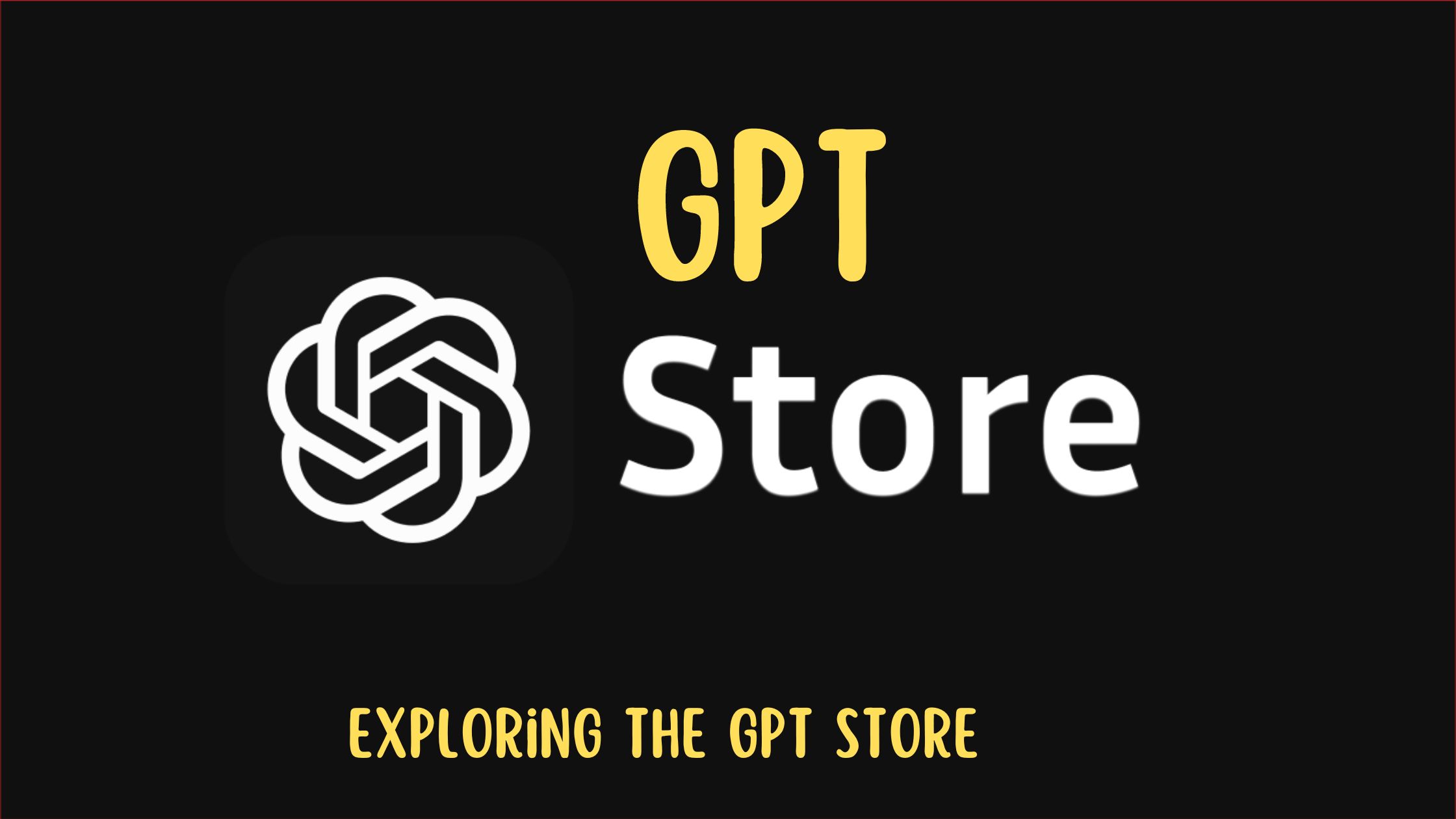Introduction: GPT Store
Welcome to the GPT Store, a revolutionary platform by OpenAI that brings personalized AI assistants to your fingertips. In this article, we'll delve into the intricacies of the GPT Store, exploring how it is transforming the landscape of artificial intelligence. From tailored GPTs to building your own AI dream team, the possibilities are endless.
GPT Store: Unveiling the GPT Store
- Imagine a world with AI companions customized for your specific needs.
- GPTs (Generative Pre-trained Transformers) are the stars of the GPT Store, offering specialized expertise.
- Unlike generic AI applications, GPTs are domain experts, excelling in tasks from coding to creative writing.
GPT Store: Browsing the Aisles of the GPT Store
- The GPT Store is not your typical app store; it's a curated marketplace of AI expertise.
- Categories include education, productivity, creativity, and more, each with detailed GPT listings.
- Free trials empower users to test-drive GPTs before making a commitment.
GPT Store: Building Your Own AI Dream Team
- The GPT Store isn't just for consumers; it's a playground for aspiring AI architects.
- OpenAI's user-friendly interface allows non-coders to build custom GPTs, tailored to their needs.
- Share your creations with the world, contributing to a diverse ecosystem of personalized AI.
Beyond Convenience: The Broader Implications
- The GPT Store has transformative potential in education, research, creative industries, and personal productivity.
- Personalized learning experiences, expert guidance, and enhanced creativity are just the beginning.
- Acknowledging challenges, including the development stage, ethical concerns, and cost factors.
GPT Store: A Glimpse into the Future
- The GPT Store marks a milestone in democratizing AI, making sophisticated tools accessible to all.
- Responsible development and continuous improvement are crucial for navigating challenges.
- The future promises more sophisticated GPTs, innovative applications, and a human-centric AI landscape.
Here are the pros and cons of the GPT Store:
Pros: GPT Store
1. Specialized AI Assistance:
The GPT Store offers specialized AI models (GPTs) tailored for specific tasks, providing users with highly focused and expert assistance in various domains.
2. Diverse Applications:
Users can find GPTs for a wide range of applications, from education and productivity to creativity, catering to different needs and preferences.
3. Curated Marketplace:
The platform is curated, ensuring a certain level of quality and expertise in the listed GPTs. This helps users make informed decisions about the AI models they choose.
4. User-Friendly Interface:
The GPT Store provides a user-friendly interface, making it accessible to both coding experts and non-coders. Users can easily navigate, discover, and utilize GPTs.
5. Free Trials:
Many GPTs on the platform offer free trials, allowing users to test the capabilities of the AI models before making a commitment.
6. Customization Options:
Users can build their own GPTs using the platform, tailoring them to specific needs and preferences without requiring extensive coding skills.
7. Democratization of AI:
The GPT Store empowers a diverse community of builders, democratizing access to AI tools and fostering innovation and collaboration.
Cons: GPT Store
1. Development Stage:
GPTs, as a technology, are still under development. Users may encounter occasional limitations and potential biases as the technology continues to evolve.
2. Ethical Concerns:
The integration of AI into various aspects of life raises ethical questions about potential misuse, algorithmic bias, and user privacy. Responsible use and continuous improvement are essential.
3. Cost Factor:
While some GPTs offer free trials, others may come with significant price tags for continued use. This could limit accessibility for certain users, raising questions about affordability.
4. Learning Curve:
Despite efforts to make it user-friendly, building custom GPTs may still have a learning curve for some users, especially those with limited technical background.
5. Dependency Risks:
Heavy reliance on AI assistants, while convenient, may lead to dependency risks, where users might struggle without the AI support they've grown accustomed to.
6. Potential for Misinformation:
Depending on the training data, GPTs may generate information that, while coherent, might not always be accurate. Users should exercise caution, especially in critical contexts.
7. Security Concerns:
As with any online platform, there may be security concerns regarding data privacy and the protection of user-generated content within the GPT Store.
It's essential to weigh these pros and cons based on individual needs and considerations when engaging with the GPT Store and similar AI platforms. Responsible use and ongoing improvements in AI technology will play a crucial role in addressing challenges and maximizing benefits.
Conclusion: GPT Store
As we navigate the GPT Store, it's clear that we stand at the threshold of a new era in AI. The democratization of AI tools, tailored to individual needs, holds the promise of a more personalized, empowered, and human-centric world. Embrace the potential, explore the store, and become a part of the evolving landscape of personalized AI.
frequently asked questions (FAQs) about the GPT Store:
1. What is the GPT Store?
- The GPT Store is a revolutionary platform by OpenAI that offers specialized AI assistants known as GPTs (Generative Pre-trained Transformers). These GPTs are tailored for specific tasks, allowing users to find or create AI models that excel in domains like education, productivity, creativity, and more.
2. How does the GPT Store work?
- The GPT Store operates as a marketplace where users can discover, trial, and purchase GPTs created by a diverse community of builders. Users can also build their custom GPTs using OpenAI's user-friendly interface, empowering both developers and non-coders to train AI assistants.
3. What can GPTs do?
- GPTs are designed to excel in specific domains. They can assist in tasks such as personalized learning experiences, creative content generation, data analysis, and more. The capabilities of each GPT are detailed in the store listings, allowing users to choose AI models based on their specific needs.
4. Can I try GPTs before purchasing?
- Yes, most GPTs in the store offer free trials. Users can test the capabilities of these AI assistants before making a purchase decision. This trial period allows individuals to ensure that a particular GPT aligns with their requirements and expectations.
5. Is coding experience required to use the GPT Store?
- No, the GPT Store is designed to be user-friendly, and coding skills are not necessary to utilize its features. OpenAI's intuitive interface enables anyone to build their custom GPT by providing data and instructions. This democratizes access to AI, making it inclusive for a broader audience.
6. What are the potential applications of GPTs?
- GPTs have diverse applications, including personalized tutoring, creative content generation, data analysis, and more. They can be employed in various fields such as education, research, creative industries, and personal productivity. The GPT Store fosters innovation by providing a platform for builders to contribute their expertise.
7. Are there any considerations when using GPTs?
- Yes, users should be aware that GPTs are still under development, and occasional limitations or biases may be present. Responsible development practices and user feedback are crucial for refining these AI models. Additionally, ethical considerations regarding AI usage, potential misuse, and fairness issues should be taken into account.
Explore the GPT Store FAQ to gain more insights into this innovative platform and make the most of personalized AI experiences!
Written By: Muktar

























